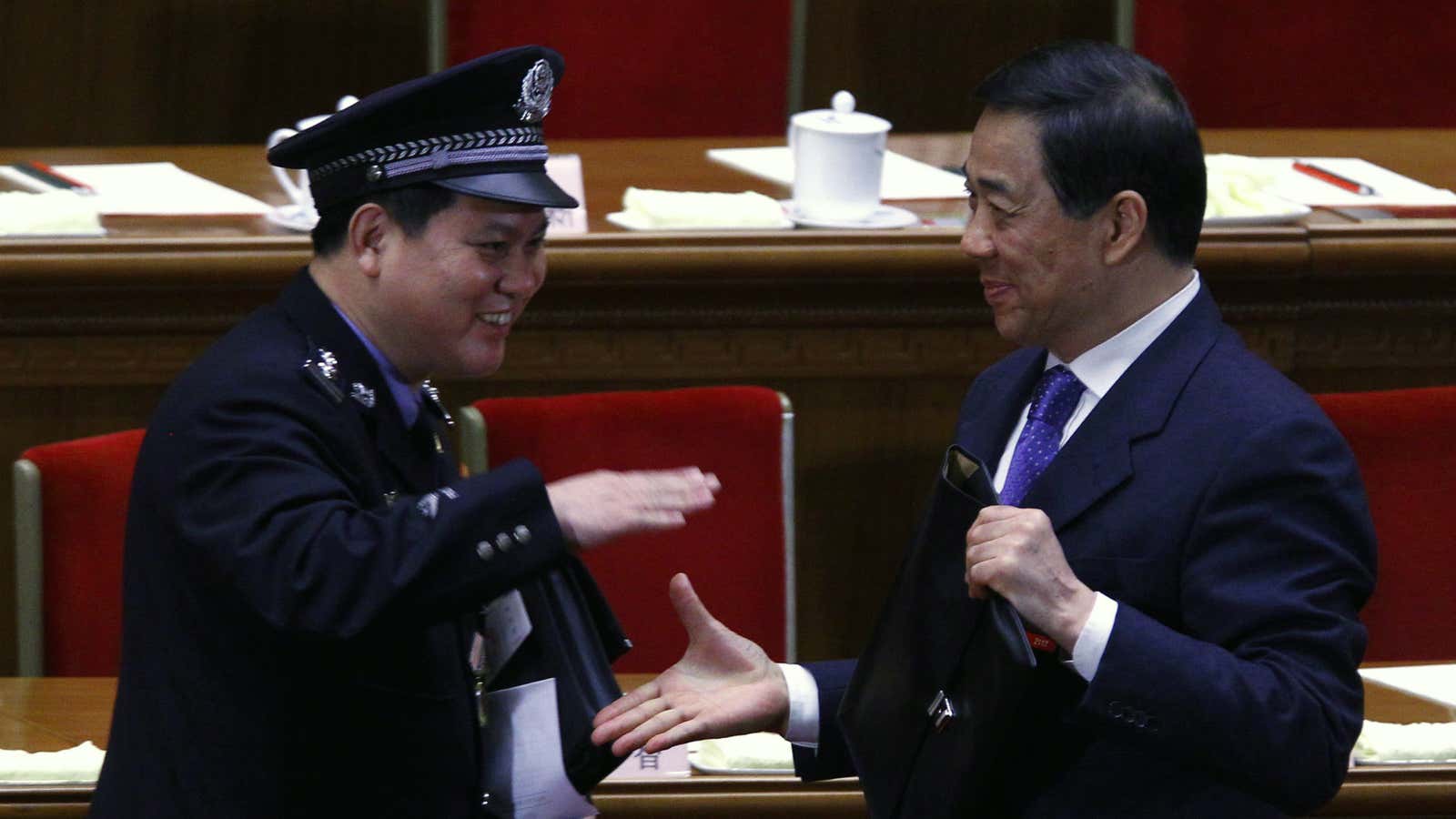China’s economy may not be facing a hard landing, but its disgraced former Politburo member Bo Xilai is. Media coverage in the run-up to his trial, which starts Thursday, is being carefully orchestrated to send a message along with his inevitable jail sentence. China’s new leaders appear to want Bo to be remembered as a high-ranking party member brought down by its crackdown on corruption (despite the fact that this administration took office only after Bo was purged).
That isn’t an easy task. Prior to his arrest, the former Chongqing party chief had emerged as a populist figure championing the principles of Mao Zedong and battling corruption. He still has many supporters, who tend to believe he was the victim of party politics, rather than a man who “seriously harmed the interests of the state and the people,” as he’s being portrayed.
Here’s how the government is advancing its own “anti-corruption” narrative—and quashing popular support for Bo and lingering questions about the motives behind Bo’s arrest:
Crafting the meme
Though earlier this month Bo’s name appeared to be censored from Sina Weibo, as the South China Morning Post reports (paywall) it recently became unblocked after his court date was announced. Not all posts, of course. Free Weibo, a site that collects censored microblog posts, shows the kind of support (link in Chinese) still around for Bo, with some users saying that he is being “persecuted” and “framed.”
As Tea Leaf Nation reported when Bo was charged in July, many posts about the trial on the country’s Sina Weibo microblogging platform used exactly the same wording in support of the party’s anti-corruption campaign—hinting that they might have been the handiwork of the “50 Cent Party,” as the ranks suspected to be paid pro-government commentators are known.
Managing the opposition
Bo’s supporters may not be willing to see him go to prison quietly, and Beijing knows it. The Telegraph reports that many pro-Bo Chinese have been detained or placed under surveillance, quoting one Beijing teacher who said she couldn’t meet journalists because “the police are sitting next to me.” Even so, a handful of demonstrators turned up outside the courtroom on Wednesday to show their support for Bo.
Delivering the message worldwide
In an unprecedented move for a case of this importance, censors will allow registered foreign media to attend a dedicated press conference with a live feed from the trial. (However, Reuters reports that the most sensitive charges against Bo may have taken place in a secret session on Wednesday.)
Despite all of this elaborate preparation and the foregone conclusion that Bo will be found guilty, however, Beijing has a lot to be nervous about. Bo lived a flashy, elitist life but also stood for a Maoist ideal and “leftist” ideology (paywall) in a way that threatened the mainstream party. The government’s three-ring media circus shows that it still does.
With additional reporting and Chinese language translation by Jennifer Chiu.
